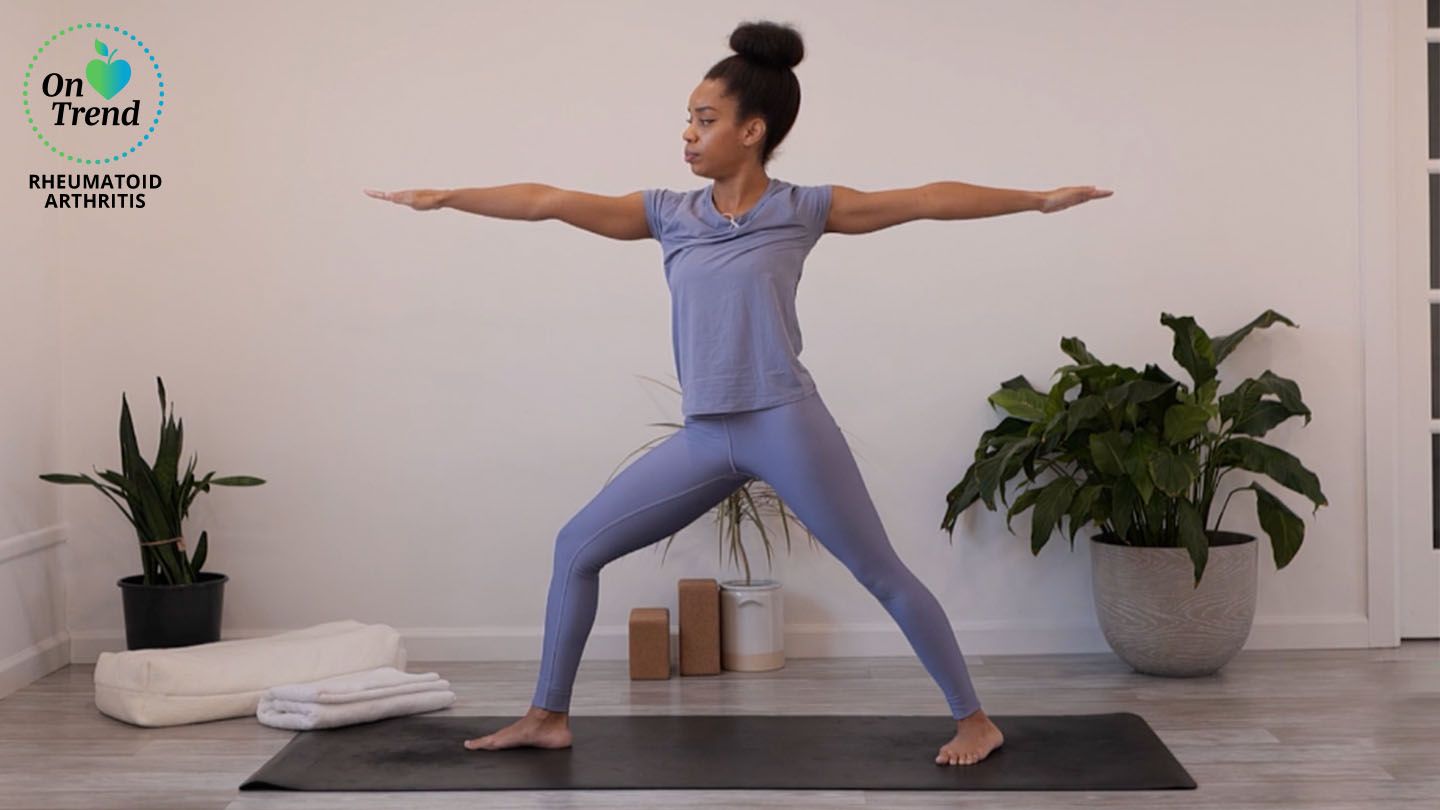
Yoga can help you improve your flexibility. It can help you overcome stiffness and joint aches. If you're new to the practice, it's easy to feel limited by the lack of flexibility in your hips and hamstrings. This can lead to poor posture, straining the knee joint, and worsening of your posture. It also reduces levels of dopamine and serotonin, which are neurotransmitters that improve mood and reduce stress.
A study found that yoga has a positive effect on chronic low back pain. This condition is the most common in veterans. It can greatly impact one's quality-of-life. After a 12-week yoga program, participants reported lower levels of disability and intensity. Also, participants reported less use of opioids, which can be a huge benefit for people who have chronic low back pain. The benefits of yoga have been extensively documented.
Yoga can be a great way to reduce stress. These yoga exercises can improve your overall health, as well as increasing lymph flow. During practice, you'll increase the lymph drainage system, which is a vital part of the body. The lymphatics system is responsible in preventing infections, killing cancer cells, as well as disposing of toxic substances. By practicing yoga regularly, you'll be less likely to feel stressed out, which is a good thing, because it can help you sleep better.

Stress can make constipation worse. Yoga can help by improving your posture, flexibility, and overall health. Yoga can also reduce suffering, which is a great benefit. As a result, stress is also a major contributor to bowel issues. Yoga can help with constipation. You can train your mind to be present by improving your ability concentrate, learn, retain and share information.
Yoga has been shown to improve your cardiovascular health according to research. Yoga can improve hemoglobin levels, which is the protein that transports oxygen to the tissues. This is another beneficial effect of yoga. In addition to improving your heart health, it can also reduce the risk of cardiovascular disease and strokes. It has been proven to improve muscle strength and flexibility, especially in the feet and hands. It is also known to increase balance, which can be important for many reasons.
The benefits of yoga extend to the spinal discs. The discs in the spinal canal between the vertebrae prevent herniated nerves from compressing and herniating. These discs must be mobile to ensure that the spinal disks get the nutrients they require. You should therefore practice a variety if yoga poses in order to maintain spinal health. You can increase the flexibility of your muscles through asanas.
Yoga has many benefits. It can help you combat depression and anxiety. A 2015 study found that people who practice yoga twice per week had lower stress levels and improved their cardiovascular function. This means they are less likely for heart disease. While this is a small benefit, it's one of the most powerful. This helps them feel better and more confident about themselves.

Similarly to other forms of exercise, yoga also improves the heart. It is responsible for pumping blood throughout the body. It also helps improve the overall health and well-being of the heart. This reduces the chance of developing heart disease. Yoga can improve your cardiovascular fitness and help you to reduce the risk of developing heart diseases. You don't have to do this exercise.
In addition to promoting physical health, yoga can also reduce the symptoms of heart disease. It can slow down the progression and severity of cardiovascular disease by decreasing levels of cholesterol, as well as other inflammatory compounds. It has been proven to reverse DNA changes and lower cortisol. It can help prevent heart attacks, migraines, and osteoporosis. It can also be great for your mental health as it can help with stress management and improve your focus.
FAQ
What's a good workout plan for 7 days?
A seven-day exercise program should consist of three days per week of cardiovascular training (running, biking, swimming), two strength exercises (using free weights, weight machines), and one flexibility/core workout (yoga, Pilates). Each activity should be done at least once per week. Each session should not last more than 45 minutes.
Cardiovascular Exercises: Running, biking, swimming
You should aim to get at least 60 mins of cardio exercise per week. Try to do 75 minutes per semaine for the best results. Cardio exercises can be used to increase blood flow, stimulate muscle growth, and improve blood circulation.
Strength Training
Cardio exercises target the heart, lungs and muscles. Strength training targets the muscles, tendons and bones. Strength training builds lean muscle mass, which helps burn calories even when resting.
Flexibility & Core Workouts
To strengthen your whole body, flexibility and core work outs are excellent ways to do so. Both yoga or Pilates are great options.
What is the best way to lose weight?
It can be difficult to lose weight. Many people give in to temptation because they don't know how to proceed.
But there are steps you can follow to shed extra pounds.
First, make sure you eat less calories than you burn. You can gain weight by eating more calories than your body burns.
Second, you must start exercising regularly to burn off all those calories. There are many types of exercise you can do, such as walking, running, cycling, and dancing.
Third, you must stop smoking cigarettes and drinking alcohol. These habits cause you to consume more calories than you would otherwise.
Fourth, it is important to reduce the consumption of junk food and fatty foods. You can replace these unhealthy foods with healthier choices like fruits, vegetables, lean proteins, whole grains and nuts, seeds and beans, as well as other healthy options such a legume, fruit, vegetable, legumes, whole grain, nuts, seeds, and beans.
Fifth, you need to change your lifestyle and adopt new habits. Perhaps you need to get up in the morning to exercise before heading to work.
Sixth, you must be disciplined and follow your diet plan.
To burn extra calories, you can also join a gym or take an aerobics class.
By following these simple tips, you will soon begin to notice results.
Is it true that overeating protein causes kidney stones?
Protein helps maintain healthy bone and tissue. But consuming too much protein can lead to calcium excretion through urine. In turn, this can result in kidney stones.
Not everyone who eats more than 2g of protein per kilogram (2.2 lbs) of bodyweight will get kidney stones. People can eat large amounts of protein and not get kidney stones.
Your sodium intake can prevent kidney stone formation. The kidneys regulate the amount of sodium they consume. A high level of sodium can increase the risk of developing kidney stone.
You can also reduce your intake of proteins if you develop kidney stones. Protein provides about half of the daily caloric needs for most adults. Reduce your intake of protein and you will likely lose weight.
If you do decide to eat more protein, don't go overboard. Limit your intake to 20% of your total daily protein intake.
Do Men Need A Gym Membership?
A gym membership does not have to be required for men. You will get more value for your money if you join the gym.
Many gyms offer free trial memberships that allow you to test the facilities before signing up for any monthly fees.
The gym is free to use whenever you wish, and there are no fees. It's easy to cancel your membership when you decide whether or not you love the gym.
Statistics
- According to the American Heart Association, blood pressure should be checked at least once every two years, beginning at age 20. (my.clevelandclinic.org)
- Get free shipping and 25% off today. (healthline.com)
- Candidates and applicants must pass all four tests at 70% (minimum level) to graduate from Basic Deputy U.S. Marshal (BDUSM) Training. (usmarshals.gov)
- By John Thompson Take a whopping 38% off a set of PowerBlock Pros. (menshealth.com)
- According to the American Academy of Dermatology (AAD), men over 50 are at a heightened risk of developing it. (healthline.com)
External Links
How To
What should you eat before you go to work?
To lose weight, you need to eat fewer calories than you burn during exercise. You must also eat all of your nutrients.
This includes protein, carbohydrates, fats, and vitamins.
The best way to achieve this is to eat smaller meals throughout a day rather than three large meals.
It is possible to not do as well if your body is too full when you work out.
Consider drinking water rather than sugary energy drinks. This keeps you hydrated and energized.
But make sure you're getting enough fluids. Your electrolytes could be diluted if you drink excessive water.
Electrolytes are essential for the body's proper functioning.
If you don’t have any access to water, sports drinks might be a good option. They can be rich in minerals like sodium, potassium or calcium.
This help replenishes lost electrolytes. However, they still won't replace what you've lost from sweating.
You could also consider taking a multivitamin tablet if you are concerned that you might lose too much salt from exercising.
These have extra vitamin B6 that helps regulate sodium levels in your body.
If you don't know the salt content of your foods and beverages, supplements shouldn't be relied upon.
They aren’t controlled by the Food and Drug Administration.
For example, some brands of sports drinks can contain more sodium than others.
Some sports drinks might contain artificial sweeteners, preservatives, or both. These may cause digestive problems.
If you're concerned about salt intake, sea salt could be used.
It contains fewer chemicals then table salt.
Sea salt also lacks iodine. This mineral is important for healthy thyroid function.